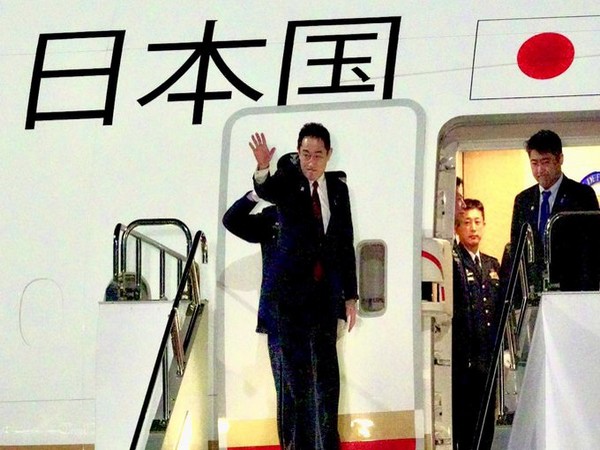
Tokyo: Japanese Prime Minister Fumio Kishida on Sunday said that a new plan on Free and Open Indo-Pacific will be annouced during his two-day visit to India and will present concrete ideas about the future of it at "this historical turning point."
Taking to his Twitter handle, Kishida said that he will hold a meeting with Prime Minister Narendra Modi. PM Modi and his Japanese counterpart will make press statements after the meeting, the Ministry of External Affairs said in the media advisory.
In a tweet, the Japanese PM stressed that he would like to discuss the role that the two nations should play in tackling international challenges and strengthening India-Japan's "Special Strategic Global Partnership." He noted that India holds the G20 Presidency and Japan holds the presidency of the Group of Seven nations (G7).
He tweeted, "I will visit #India and meet with Prime Minister Modi ( @narendramodi). This year, Japan will chair the G7 and India will chair the G20. I would like to exchange views on the role that our two countries should play in resolving the mountain of international challenges, and to further strengthen our "Special Strategic Global Partnership."
Fumio Kishida said that during his stay in India, he will announce a new plan for Free and Open Indo-Pacific. He said that they will present ideas about the future of the Free and Open Indo-Pacific.
Kishida in a tweet further stated, "In addition, during my stay in India, I will announce a new plan on Free and Open Indo-Pacific. We will present concrete ideas about the future of FOIP at this historical turning point."
In a speech on Monday, Kishida is likely to announce a new plan to promote a free and open Indo-Pacific, a Japan-led initiative aimed at curbing China's growing assertiveness, Kyodo News reported citing a government official.
Kishida is expected to invite PM Narendra Modi to participate in the G7 summit. India is a member of the Quad, which includes Australia, Japan and the US, as per the Kyodo News report. Kishida has been eager to strengthen ties with such countries to pave the way for the success of the G7 in-person summit scheduled to be held in Hiroshima in May.
Since the last meeting between India and Japan held in March 2022, now is a significant time to engage on a bilateral level as both New Delhi and Tokyo are holding the Presidencies of the G20 and G7, respectively.
The partnership between both countries ranges in various sectors, including defence and security, trade and investment, S&T, Education, healthcare, and critical and emerging technologies.
During Kishida's visit to India, converging interests on important global challenges, including food and health security, energy transitions, and economic stability, can be worked on by the two nations.
In a press briefing on Thursday, Ministry of External Affairs (MEA) official spokesperson Arindam Bagchi said that Japan is a "very important partner" and he stressed that India looks forward to the exchange of views. He did not reveal details regarding the talking points of the discussion that will take place between Prime Minister Narendra Modi and his Japanese counterpart.
"We look forward to the visit of the honourable Prime Minister of Japan that's on Monday. As you know, Japan is our very important partner. We have annual summits with them and this is part of that. They are also partners in plurilateral and multilateral constructs so we look forward to a rich discussion. We look forward to the exchange of views," Arindam Bagchi had said.
"Prime Minister had gone to Japan last year. Prime Minister Kishida had come here so we look forward to taking forward those discussions but what will be the talking points, what will be the outcomes let the leaders talk about it. I think it's pretty far too soon to judge that," he added.
On March 10, the Ministry of External Affairs in a press release said, "During the visit, he will hold talks with Prime Minister of India, Shri Narendra Modi. Both sides will discuss bilateral and regional issues of mutual interest. They will also discuss their priorities for their respective Presidencies of the G7 and G20."